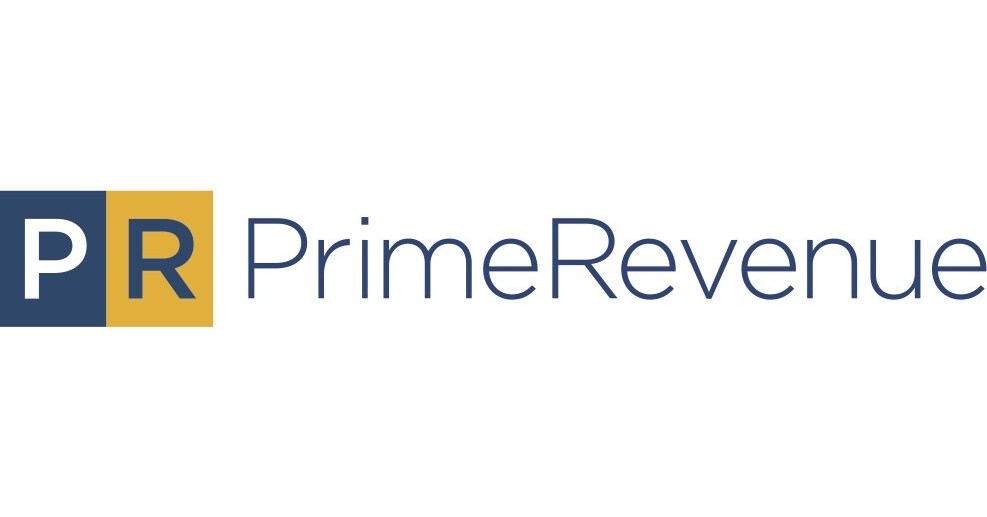Finance
PBM, mental health legislation advances through Senate Finance Committee

Legislation addressing Medicare payments and mental health and pharmacy benefit managers (PBMs) advanced through the Senate Finance Committee on Wednesday in a nearly unanimous vote.
Other than Sen. Ron Johnson (R-Wis.) who did not vote, 26 members of the panel voted to advance the package, adding to the bipartisan pressure for Congress to act on reforms to certain pharmacy intermediary business practices.
The PBM provisions passed Wednesday build on earlier legislation the committee passed in July and will “root out middlemen tactics that drive up health costs for patients and taxpayers,” Committee Chair Sen. Ron Wyden (D-Ore.) said in a statement.
“These measures steer America’s prescription drug market towards a state of rationality where the incentives are always to have lower costs for patients and taxpayers,” Wyden said.
The most impactful provision in the bill would create a list of discounted drugs with high rebates in Medicare Part D where Medicare beneficiaries will pay the net price for the drug rather than the list price after patients meet their deductibles
The net price includes rebates, but the list price does not. The provision aims to prevent situations where insurers are paying less to cover the drugs than patients are.
On mental health, the legislation would require Medicare Advantage plans to keep accurate directories of providers, eliminating what Wyden called “ghost networks.”
“Ghost networks will be a thing of the past with the consumer protections in this bill — because insurers will have to actually cover the mental health providers listed in their directories,” Wyden said.
The legislation includes extensions of expiring Medicare and Medicaid payment provisions. It delays cuts to safety-net hospitals that treat low-income patients for two years, and it provides another year of bonus payments to physicians who move away from the practice of “fee-for-service” medicine toward value-based care.
The bill is completely paid for, as it balances the savings from the new provisions with the cost of the extensions, making it more likely to fit into a year-end government spending bill.
Copyright 2023 Nexstar Media Inc. All rights reserved. This material may not be published, broadcast, rewritten, or redistributed.

Finance
Financial Services Legislation Is in the Spotlight as the 119th Congress Settles In | PYMNTS.com

The 119th Congress has now been seated, and is poised to consider, to take up — or to scuttle — financial services legislation that may touch on everything from credit cards to earned wage access (EWA) to digital assets.
The incoming majorities belong to the Republicans, of course, and it’s no secret that president-elect Trump and other members of his party have expressed misgivings about the Federal Deposit Insurance Corp. (FDIC) and the Consumer Financial Protection Bureau (CFPB), and the roles and scope of those agencies are as yet undetermined.
The House Financial Services Committee now is being chaired by Rep. French Hill, R-Ark. The Senate Banking Committee is being chaired by Sen. Tim Scott, R-S.C.
What May Be Up
As for what may still be considered “outstanding”:
Front and center will be what happens with the Credit Card Competition Act. It’s been a long road for the CCCA, which, among other things, would enable card payments to be routed over at least one network that competes with Mastercard and Visa. Since being introduced in 2023, the act has been stalled in Congress, and should it be taken up again, there’s no surety that it would make it through into law, but it may indeed come up for debate. Now vice president-elect JD Vance had signed on to the bill.
At issue will be the ways in which the bill would change the dynamics of the card industry. Supporters say that the routing provisions would open up competition. But as Karen Webster noted in a recent column, “Notwithstanding a lack of understanding of how dual routing would work for credit card transactions, the flaw in Sen. Durbin’s bill is a lack of understanding of how the current credit card ecosystem works. And, more fundamentally, how platform ecosystems ignite and scale — and are monetized.”
Separately, the Earned Wage Access Consumer Protection Act would define EWA providers and sets strict operational boundaries, specifically regulating both employee-sponsored programs and direct-to-consumer offerings.
Digital Assets
There have been various attempts to have legislation that would set frameworks for digital asset markets to be structured. One bill, the Financial Innovation and Technology for the 21st Century Act passed in the House but did not make it through the Senate. The act would, among other things, set standards for digital assets and consumer protections, and segregation of funds.
Crypto and artificial intelligence (AI), of course, will also be on the agenda.
In an interview with PYMNTS, Mike Katz, a partner in Manatt, Phelps and Phillips Financial Services Group, said that “despite the razor-thin Republican majorities, there is a growing bipartisan consensus in Congress around the need for thoughtful, innovation-focused crypto and AI legislation,” adding, “It will be interesting to see if any digital asset bills are part of the tax-and-border-focused reconciliation package already being discussed in Congress. I’d expect a strong stablecoin bill to move quickly given existing bipartisan support.”
And he added: “Keep an eye out early in 2025 for a repurposed or chopped up version of the pro-crypto bill FIT21 [which passed the House with a large bipartisan majority in May]. Regardless of form or timing, new legislation will finally provide clarity on the questions of whether crypto assets are ‘securities’ or ‘commodities’ … and on which regulatory authority is charged with oversight.”
Finance
Protecting Your Future: How Cognitive Decline Affects Financial Decision-Making | University of Denver

RadioEd co-host Emma Atkinson sits down with medical doctor and finance expert Eric Chess to break down why financial decisions can be an early indicator of cognitive decline.
Podcast •
News •
Hosted by Jordyn Reiland and Emma Atkinson, RadioEd is a triweekly podcast created by the DU Newsroom that taps into the University of Denver’s deep pool of bright brains to explore the most exciting new research out of DU. See below for a transcript of this episode.
Show Notes
As we get older, things change. Our priorities shift, viewpoints and opinions evolve, and our bodies—and brains—age.
Many of these changes are good—we can celebrate the process of aging as one that invites wisdom and joy. But there are natural consequences of getting older, and one of those consequences is cognitive decline.
Eric Chess is a former medical doctor who has also earned degrees in law and business. Chess is the director of the Paul Freeman Financial Security Program at DU. He seeks to identify the earliest signs of cognitive impairment—and works to protect the lives and financial assets of older people experiencing cognitive decline.
Dr. Eric Chess is a physician, lawyer and professor with a focus on prevention, comprehensive well-being, financial security and older adults. He has over a decade of
experience in internal medicine practice (board certified), as a hospitalist and as an outpatient physician. He is currently a Clinical Professor at the University of Denver’s Knoebel Institute for Healthy Aging, serving as the founder and director of Aging and Well-being/The Paul Freeman Financial Security Program. Additionally, he serves as an adjunct Professor at the University of Denver’s Sturm College of Law and Daniels College of Business. Dr. Chess has an undergraduate degree in economics and political science, and a graduate law degree with experience as an attorney and economic consultant.
The Knoebel Institute for Healthy Aging creates and implements solutions for aging issues through multidisciplinary research, education and outreach by serving as an information clearinghouse for media on matters related to aging; educating and training a diverse workforce to serve a rapidly aging population; and promoting innovation, research and business development related to aging.
The Paul Freeman Financial Security Program combines the expertise of faculty, researchers and students at the University of Denver. Their interdisciplinary team of researchers in law, finance, psychology, social work, business, neuroscience, and medicine is led by Eric Chess, MD, JD. Goals of impact include four main areas: Research and Development; Outreach and Collaboration; Education; and Policy. Part of the program’s core mission is to address the need for more impactful solutions regarding financial exploitation and fraud of older adults. Target areas currently include developing a financial vulnerability scale, leading a state-wide collaboration, developing a financial-protective team legal instrument, and addressing the significant transfer of wealth affecting older adults and potential future generations and clients.
More Information:
Finance
PrimeRevenue Wins 2025 Global Finance Award

“The global supply chain finance sector continues to experience significant growth, driven by the increasing need for efficient cash-flow solutions and the adoption of digital platforms to streamline operations,” Joseph Giarraputo, publisher and editorial director of Global Finance, stated in a press release announcing the winners. “The honorees for our Best Supply Chain Finance awards met the challenges of evolving trade dynamics while seizing opportunities for their clients.”
Over the past year, PrimeRevenue’s full stack of solutions facilitated funding partners’ management of over $25B of assets on a day-to-day basis, accelerated payments on more than 12.5M invoices, and enabled suppliers to get paid 80 days early on average. In addition, PrimeRevenue recently launched a comprehensive Payments-as-a-Service (PaaS) solution, designed to help businesses improve operational efficiency, enhance security and unlock valuable working capital.
“This industry recognition is a testament to the dedication, tenacity and innovation of our team,” said PJ Bain, CEO, PrimeRevenue. “At PrimeRevenue we take pride in our commitment to our customers, and in the values—performance, respect, innovation, diversity, excellence and integrity—that we strive to embody every day. Those values are ingrained in our culture, and serve as a North Star as we continue to level up and expand our services in working capital and payments in the U.S. and across the globe.”
PrimeRevenue will attend the Global Finance Awards ceremony, which takes place during the closing luncheon of the BAFT Europe Bank-to-Bank Forum on March 12 in Amsterdam.
About PrimeRevenue
As a pioneer in global B2B payments, the PrimeRevenue platform connects the entire supply chain by improving working capital and automating digital payments. Thousands of companies around the world leverage one streamlined platform to increase payment visibility, enhance control, and improve cash flow. PrimeRevenue is headquartered in Atlanta, with offices in London, Prague, Hong Kong, and Melbourne. Learn more at www.primerevenue.com and connect with us on Twitter @primerevenue and LinkedIn https://www.linkedin.com/company/primerevenue/.
Media Contact
Melissa Banks, PrimeRevenue, 1 406-599-1648, [email protected], primerevenue.com
SOURCE PrimeRevenue
-

 Business7 days ago
Business7 days agoThese are the top 7 issues facing the struggling restaurant industry in 2025
-

 Culture7 days ago
Culture7 days agoThe 25 worst losses in college football history, including Baylor’s 2024 entry at Colorado
-

 Sports7 days ago
Sports7 days agoThe top out-of-contract players available as free transfers: Kimmich, De Bruyne, Van Dijk…
-

 Politics5 days ago
Politics5 days agoNew Orleans attacker had 'remote detonator' for explosives in French Quarter, Biden says
-

 Politics5 days ago
Politics5 days agoCarter's judicial picks reshaped the federal bench across the country
-

 Politics3 days ago
Politics3 days agoWho Are the Recipients of the Presidential Medal of Freedom?
-

 Health2 days ago
Health2 days agoOzempic ‘microdosing’ is the new weight-loss trend: Should you try it?
-

 World7 days ago
World7 days agoIvory Coast says French troops to leave country after decades



















